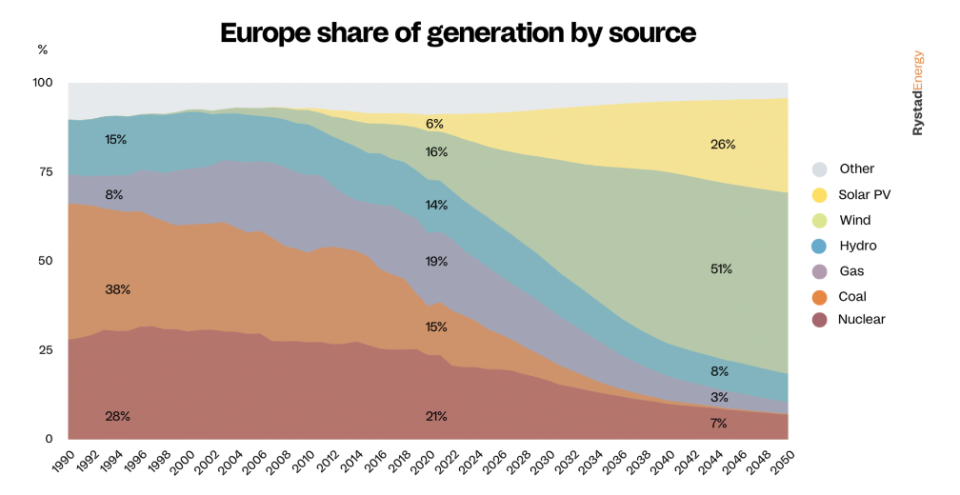Fracking fury: Industry body hammers Sunak after shale gas U-turn

The UK’s leading onshore energy body has expressed its fury with Prime Minister Rishi Sunak’s apparent decision to re-impose the ban on fracking – just weeks after it was lifted.
Charles McAllister, director of policy for UK Onshore Oil and Gas (UKOOG), warned banning fracking would risk the UK being reliant on imported supplies for a decades – undermining supply security and ramping up emissions.
He told City A.M.: “If this is true then we are stunned that such an illogical U-turn would be taken by the Government in the middle of an energy crisis, at the expense of UK households and businesses.
“If reports are accurate, then a decision has been made to lock the UK into reliance on imported gas for decades. The geopolitical, environmental and economic consequences of such a decision will last far beyond the two years remaining of this parliament.”
UKOOG highlighted that Sunak had previously expressed his support for fracking provided local communities supported it during the previous leadership campaign this summer.
Mc Allister said: “The scientific consensus is, as the Prime Minister noted a few months ago in his support of fracking, that the seismic activity from shale gas development is not out of the ordinary compared to other industries in the UK, such as quarrying, geothermal and construction.”
Downing Street confirmed yesterday Sunak will drop former Prime Minister Liz Truss’ plans to end the England ban on fracking.
He told MPs in the House of Commons that he “already said I stand by the manifesto on” fracking, which committed to maintaining a moratorium on the practice unless scientific evidence shows it’s safe.
Truss’ decision to end the shale gas extraction ban triggered a major backlash among Tory MPs, with a Labour vote on the issue last week leading to chaos in the House of Commons.
The vote, which saw confusion about the government’s instructions to backbenchers and alleged physical bullying by senior ministers, directly led to Truss’ downfall the next day.
Fracking was also excluded from Tory MP Chris Skidmore’s review of net zero, which UKOOG recently criticised.
Fracking: There and back again
Fracking involves injecting water, sand and chemicals at high pressure into boreholes deep underground to fracture rock and release shale gas.
The latest setback for the sector is only the latest chapter in a dramatic 12 months, which has seen fracking move from the verge of closure to reopening, only to be re-banned yesterday.
The Government imposed a moratorium on the practice amid concerns over tremors and safety.
Its manifesto in December 2019 said the party would “not support fracking unless the science shows categorically it can be done safely”.
Earlier this year, the North Sea Transition Authority (NSTA) ordered Cuadrilla to plug the UK’s two remaining shale wells.
However, following Russia’s invasion of Ukraine, NSTA gave fracking a reprieve – pausing its plugging requirement – before the Government decided to commission the British Geological Society (BGS) to conduct a scientific survey on the practice to assess whether the process could be made safer.

The survey suggested that while concerns over tremors remained, there was a case for exploration and drilling to determine the scale of opportunity and the viability of fracking.
BGS argued that more data collection is needed in the UK to ascertain fracking’s safety and potential.
UKOOG has has previously cited data from the BGS forecasting there could be as much as 37.6tn cubic metres of shale gas under the ground.
If ten per cent was recoverable, UKOOG argues this would be enough to help meet the country’s energy needs for the next five decades.
However, fracking remains unpopular compared to other energy activities, such as onshore wind and solar power, with YouGov polling from May suggesting the people oppose the revival of fracking by a 46-29 margin.
The Government’s most recent polling – conducted last autumn – found just 17 per cent of the public supported fracking, compared with 87 per cent who backed renewables.
UKOOG had pledged to work with the Government and local communities over potential shale gas extraction sites.
This included potential compensation and community funding.
Fracking ban draws mixed response from wonks
The apparent banning of fracking was also criticised by free market think tank, the Institute of Economic Affairs.
Andy Mayer, chief operating officer and energy analyst described the decision as an “error” rooted in “political weakness in the face of militant protest groups and anti-development campaigns.”
He argued the Government seemed determined to risk blackouts and freezeouts before “taking hard decisions rooted in reality.”
He said: “This decision will not help the planet; the UK will become more dependent on gas imports, with higher emissions than local production. It will not help the growth plan; we will be borrowing to pay Qatari and US taxes rather than building an industry.

“It will not help the low carbon transition; there will be fewer fossil fuel taxes to fund it and the cost of all energy sources will rise. It will not help our allies in the EU or Ukraine; surrendering further dominance of regional gas markets to Russian tyranny.”
By contrast, environmental think tank Green Alliance welcomed the decision, urging the Government to boost renewable projects and home insulation to ensure energy security over the coming years.
Helena Bennett, head of climate policy at Green Alliance, said: “Sunak has promised to get on and deliver on the commitments made in the 2019 manifesto. Therefore, it’s only right that reinstating the ban on fracking is part of this, along with accelerating the transition to net zero and restoring our natural environment.
“The Prime Minister now needs to put expanding renewables and reducing energy demand with a nationwide programme of home insulation at the centre of his plan for energy security and the cost of living crisis.”